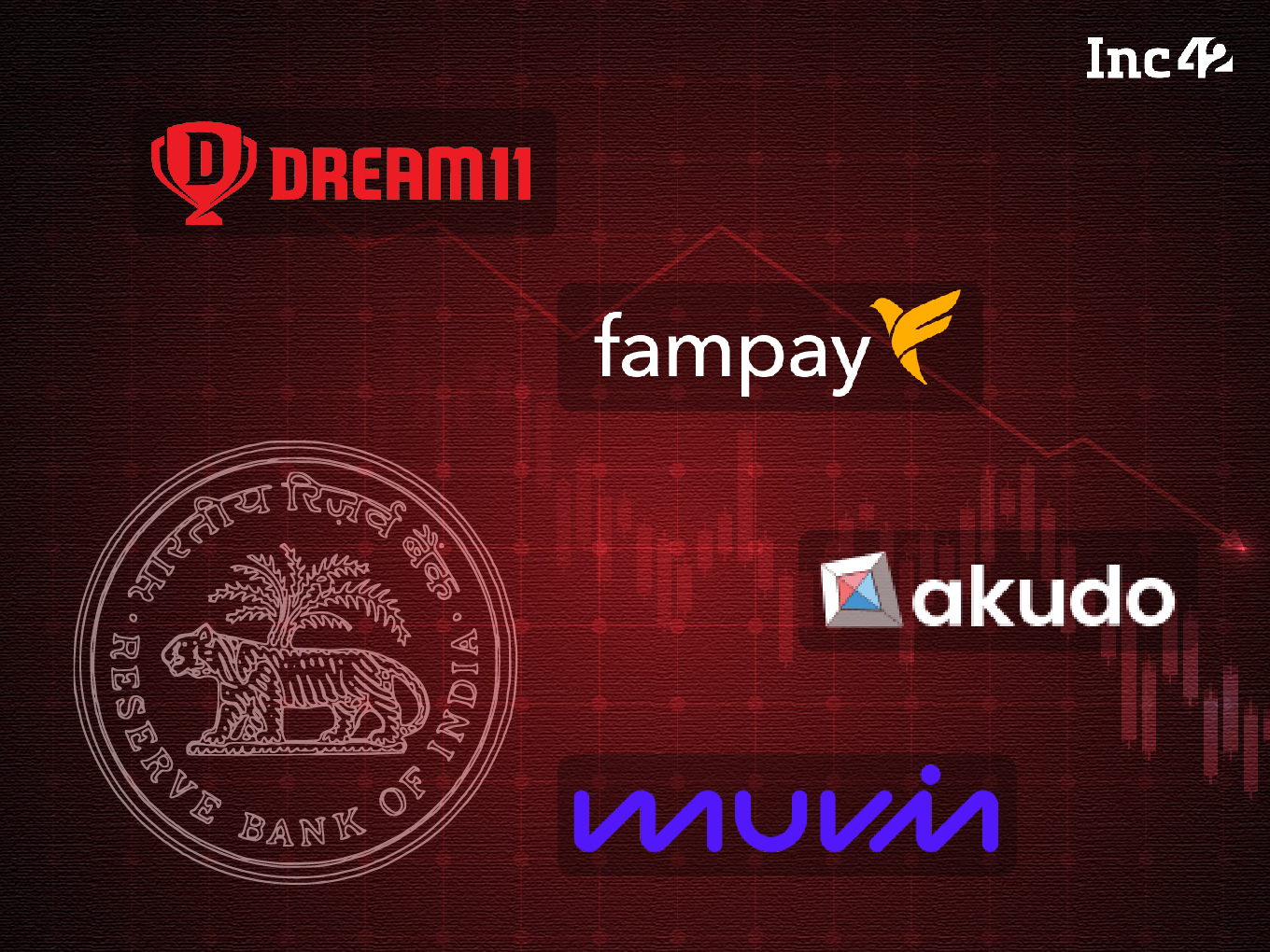SUMMARY
The RBI has directed PPI issuers to ‘stop UPI in a cobranding arrangement’ by June 30
Around 15-20 players have been impacted severely. The haste in which this order has been floated and the way it's being implemented has shocked the entire industry
The PPI industry now has a number of questions and is looking for answers as to what made the RBI take this decision
The issuers of prepaid payment instruments (PPIs), both banking and non-banking institutions, have received an email communication from the National Payments Corporation of India (NPCI), directing them to ‘stop UPI in a cobranding arrangement’. The communication by the NPCI is in line with the RBI’s master directions on PPIs issued in August 2021 and later updated in February this year.
“PPI holders shall be onboarded for UPI by their own PPI issuer only. A PPI issuer shall only link its customer wallets to the handle issued to it. A PPI issuer as PSP shall not onboard customers of any bank or any other PPI issuer,” Entrackr reported, citing an RBI directive.
Speaking with Inc42, a source privy to the development said that PPI issuers and the NPCI were in talks with the RBI for the last 10 days. Finally, on June 26, the NPCI rolled out formal clarification.
“With the RBI’s decision, 15-20 players have been impacted. UPI on PPI got introduced six months ago, and most players are still transitioning. Among those who have completed the transition include the likes of Dream11, Fampay, Muvin, and Akudo, among others, and are likely to see an impact,” the source said, requesting anonymity.
Another source, who is the founder of a prepaid cards provider company, confirmed that the impact has really been severe on them. They have been using the prepaid stack to build products for the last few years, and UPI was a much-needed breakthrough. When it comes to the acceptability of cards vs QR, the latter steals the show.
“The usage really kicked off as soon as we launched it but now all investment is lost. The haste in which this order has been floated and the way it’s being implemented has shocked the entire industry. We are essentially given four days for customers to withdraw funds using UPI. This needs to be done before June 30,” the founder, who did not wish to be named, said.
Notably, UPI on any prepaid instrument can be issued by PPI licence holders only – banks or non-banks. If the PPI issuer has partnered with any fintech or enterprise for a cobranded prepaid card, it will not be able to offer UPI for payments.
Consider fintech player Muvin, a neobank which does not have a PPI licence. It serves primarily as a customer retention and management channel. Muvin acquires customers, does KYC, offers prepaid cards to students and then enables payments via its PPI issuer.
In this case, the startup has partnered with Livquick – a registered non-bank PPI issuer – to offer cobranded prepaid cards to its customers. Once customers are onboarded, they are issued prepaid cards (physical or virtual) from Muvin, which is linked to the online wallet provided by its partner Livquick.
So, now, if Livquik has its own prepaid card, it can offer UPI payments as a feature, however, Muvin cannot. It will have only a wallet and card as payment options routed via Livquik.
“It was the NPCI only that let fintech startups assume that they can offer UPI on their prepaid products by partnering with the PPI licence holders. Now, after six months, everything has changed. This is a very destructive way of doing this and is a case of concern for the entire fintech fraternity,” another source said.
Key Reasons Why Cobranded Prepaid Cards Are On RBI’s Radar
In India, there are 54 non-banking and 58 banking PPI issuers. By definition, PPI is a prepaid instrument that can be loaded or reloaded with cash before purchasing goods and services, or enabling remittance facilities.
A prepaid instrument can be a smart card, magnetic stripe card, internet account, internet wallet, mobile account, mobile wallet, or even a paper voucher, among other instruments.
Now, most of the bank PPI issuers issue their own PPI instruments like ICICI Pockets, YONO SBI, and HDFC Payzapp, just to name a few. However, non-bank PPI issuers mostly operate in partnerships with fintech players to offer a cobranded prepaid card.
So, when a few months ago the RBI allowed UPI to route via PPIs, many fintech players, without a PPI licence, saw it as an opportunity to enter the PPI game.
“This was a great thing because every prepaid card issuer could effectively enable UPI and earn revenue via MDR. So, UPI on PPI was a revenue-making proposition. Also, it made UPI interoperable. Now, you cannot transfer from an ICICI prepaid card to an HDFC prepaid card, but with UPI this was possible,” we were told.
However, soon the RBI realised that the moment they allowed cobranded prepaid card players to do this, it becomes a back door entry. This is the same situation that happened when in June 2022, the RBI issued a notification saying that ‘PPI-MD does not permit the loading of PPI from credit line’. The notification was addressed to all authorised non-bank pre-paid instrument (PPI) issuers and impacted a number of big players such as Slice, Jupiter, Unicards, and OneCard among others.
“I can’t name the player because of which this has happened. It wanted a PPI licence and the RBI denied it. However, it cobranded with a PPI issuer, which really got on the RBI’s nerves. The apex bank wants UPI to be compliance-driven and believes the cobranded route is now going to pollute UPI,” a source said.
The Issue Doesn’t End Here
There is no clarity on what lies next for these fintechs. There are many questions that the industry is seeking answers to.
Some of the key questions that fintech players need answer to are:
- Will the RBI fast-track issuing PPI licences?
- Will it not create a conflict with consumers, who may not have any idea whether the cobranded partner is allowed UPI transactions or not?
- What if these fintech players cobrand to launch credit cards, which can offer UPI?
- Will it also impact the NPCI-promoted Rupay cards, as most players associated with it are in co-branded partnerships?
For the entire industry, this is a very confusing proposition. According to people Inc42 spoke with, an easy solution could have been to define categories which could not enter into the financial space.
“This is only an immediate reaction to something which doesn’t come into the limelight but pressured the RBI to take such a decision. This has placed a question mark on the future of UPI on credit,” a source said.
The fintech players are unable to understand the reasons behind the RBI’s directive. There is no fundamental issue in prepaid and is a very safe programme without any inherent risk. Unlike credit cards, a customer is uploading his/her own money and is only using it via a different channel. Also, implementing UPI will only help keep track of transactions.
In the past few months, the RBI has come up with a number of regulations in the fintech space. From digital lending guidelines to tokenisation and from putting P2P lending under the scanner to penalising players for flouting PPI norms, a lot of steps have been taken to regulate the sector.
The fintech players Inc42 spoke with appreciate the RBI’s initiatives and understand the importance of regulations. As one of the fintechs said, they are taking harsh measures but it was never against the spirit of innovation.
However, here, they are unable to understand the rationale behind the move. Meanwhile, for the industry, the situation has become tough, even after following all regulations and guidelines of cobranded agreements. Amid all this, the Indian fintech players are looking for a rationale behind the RBI’s move and want the central bank to refrain from giving such shocks, which can have a negative impact on businesses.
Update | 27th June, 21:40 IST
The mention of one startup has been removed, as it clarified that there is no impact on its business.



























